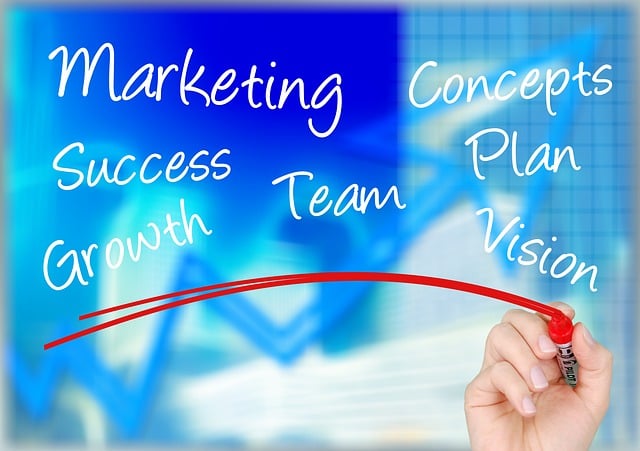AI systems are transforming traditional auto repair businesses by providing advanced marketing tools that leverage machine learning and natural language processing. These technologies enable personalized campaigns based on customer data, automate communication through reminders, quick quotes, and real-time updates, enhancing satisfaction, transparency, and trust. Implementing AI strategies requires assessing current tactics, defining objectives, choosing suitable tools, integrating data sources, testing algorithms, and setting clear KPIs for measuring ROI. Continuous optimization through A/B testing, analytics, customer feedback, and sentiment analysis ensures AI campaigns remain effective and adaptable to market trends and preferences, fostering a culture of data-driven decision-making for marketing success in the competitive auto repair industry.
In today’s digital era, Artificial Intelligence (AI) is transforming various industries, and the automotive sector is no exception. This article explores powerful AI implementation strategies tailored for auto businesses, focusing on marketing excellence and operational efficiency. From leveraging AI for targeted marketing campaigns to streamlining auto repair processes, we provide a comprehensive guide. Learn how to follow a step-by-step approach to integrate AI systems, measure success, and continuously improve your business. Discover the key to achieving marketing success in auto repair through cutting-edge technology.
- Understanding AI's Role in Auto Repair Marketing
- Implementing AI Systems: Step-by-Step Guide
- Measuring Success and Continuous Improvement with AI
Understanding AI's Role in Auto Repair Marketing

In today’s digital era, AI systems are transforming traditional auto repair businesses, offering unprecedented opportunities for marketing success. By leveraging machine learning algorithms and natural language processing, auto repair shops can gain valuable insights into customer behavior and preferences. This enables them to create highly personalized marketing campaigns that target specific vehicle makes, models, and common issues, increasing the chances of attracting and retaining customers.
AI-driven marketing allows businesses to streamline their communication with clients by automating tasks such as sending personalized emails or text messages for service reminders, offering quick quotes online, and providing real-time updates on repair progress. This not only enhances customer satisfaction but also fosters a sense of transparency and trust, setting auto repair shops apart in a competitive market.
Implementing AI Systems: Step-by-Step Guide

Implementing AI systems can be a game-changer for auto businesses looking to enhance their marketing strategies. Here’s a step-by-step guide to navigate this transformation:
1. Assess Current Marketing Strategies: Begin by evaluating your current marketing tactics and identifying areas where AI could bring about significant improvements. For instance, AI algorithms can analyze customer data in auto repair, enabling personalized marketing campaigns that cater to specific vehicle makes, models, or maintenance needs.
2. Define Clear Objectives: Establish measurable goals for AI implementation in marketing. Do you aim to increase customer retention through proactive service reminders? Or boost sales by offering tailored promotions based on purchase history? Setting these objectives will guide your choice of AI tools and technologies.
3. Choose the Right AI Tools: Select AI systems that align with your defined objectives. Marketing automation platforms can help schedule personalized emails, while natural language processing (NLP) tools enable chatbots to engage customers in real-time conversations, providing instant support or offering recommendations.
4. Integrate Data Sources: Ensure seamless data flow by integrating various sources like customer databases, inventory management systems, and social media platforms. This comprehensive view allows AI algorithms to make informed decisions, enhancing marketing campaigns’ effectiveness.
5. Test and Optimize: Implement a pilot program to test the AI systems in a controlled environment. Analyze the results and optimize the algorithms accordingly. Continuous refinement ensures that your AI-driven marketing efforts remain effective and aligned with customer needs.
Measuring Success and Continuous Improvement with AI

Measuring the success of AI implementation in auto businesses, particularly in marketing strategies for auto repair shops, is a crucial step towards maximizing return on investment (ROI). By setting clear KPIs like increased customer engagement, improved lead conversion rates, and enhanced customer satisfaction, businesses can objectively assess the performance of their AI systems. Regular data analysis allows for continuous improvement, ensuring that AI strategies remain dynamic and adaptable to evolving market trends and customer preferences.
For instance, AI-driven marketing campaigns can be optimized through A/B testing and real-time analytics, helping to refine messaging and targeting for better engagement. Additionally, leveraging customer feedback integrated with AI sentiment analysis enables businesses to quickly identify areas of improvement in services or offerings. This iterative process fosters a culture of data-driven decision-making, ultimately driving marketing success in the competitive auto repair industry.
AI implementation is no longer a future prospect but a present necessity for auto businesses aiming for marketing success. By understanding AI’s role, following a structured guide for integration, and continuously measuring performance, auto repair shops can enhance customer engagement, streamline operations, and stay competitive in today’s digital landscape. Embracing AI systems empowers these businesses to offer efficient services, gain valuable insights from data analysis, and ultimately drive growth in an ever-evolving market.
